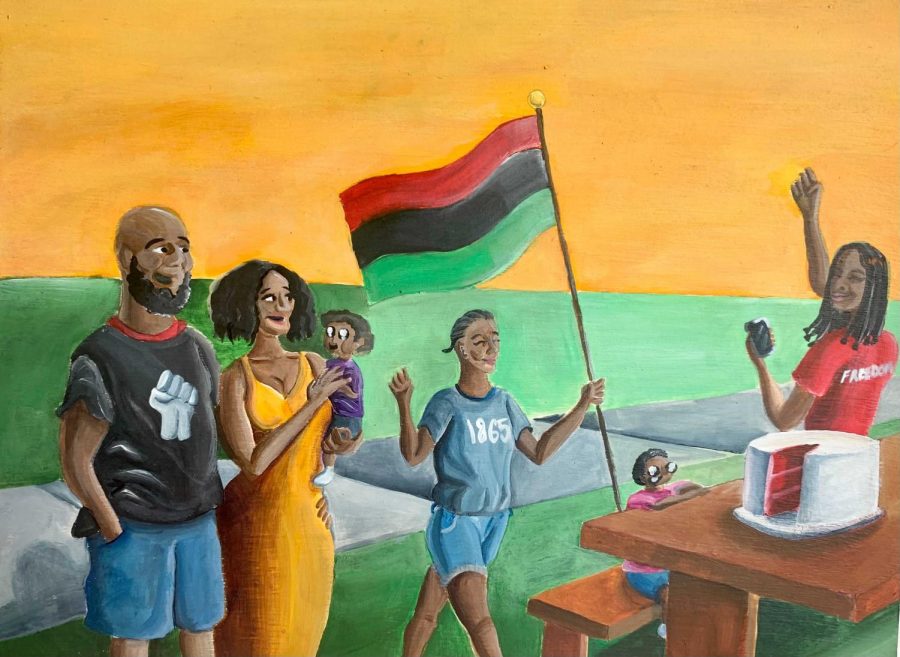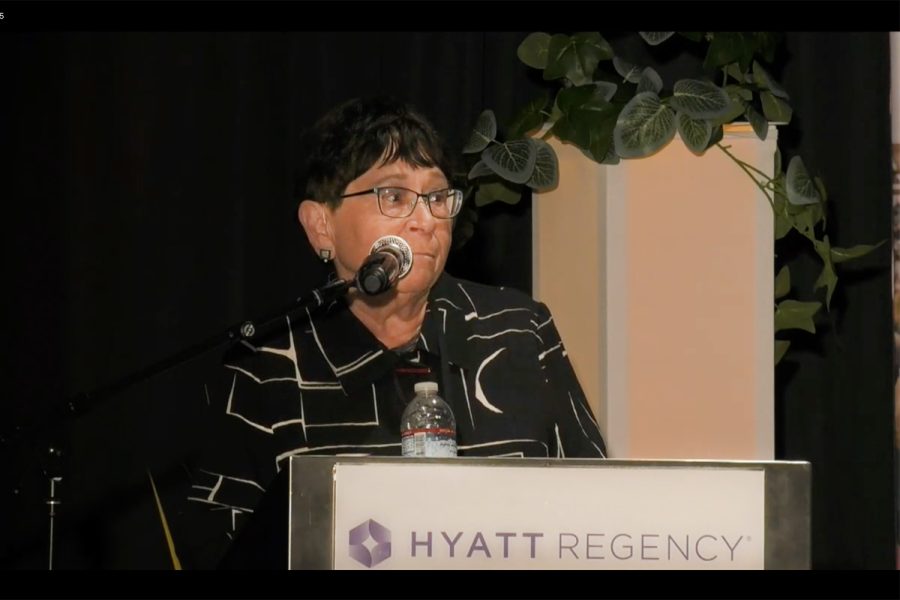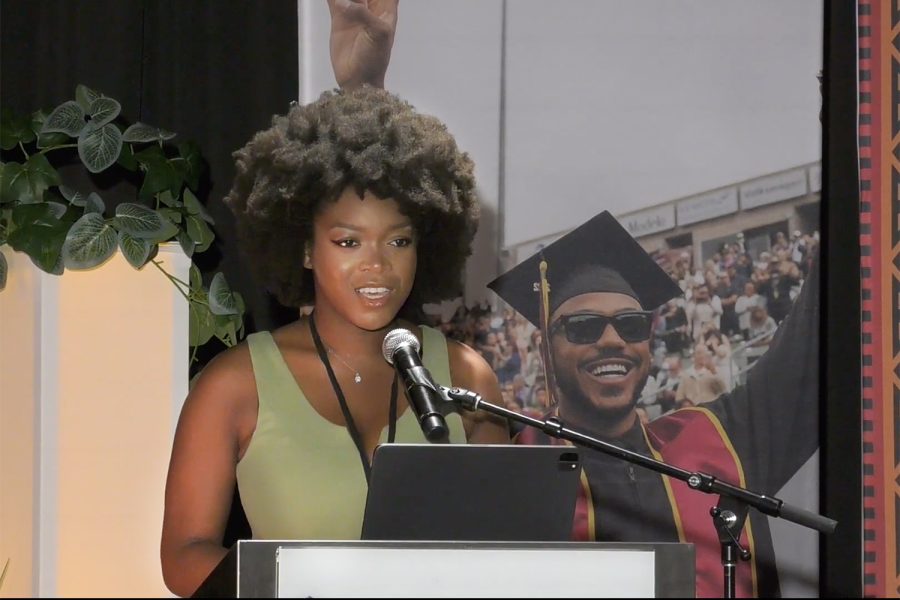CSU hosts inaugural Juneteenth Symposium
June 24, 2022
“I can’t tell you how humbling it is to propose a vision and see that vision realized.”
These were the opening words of California State University, Dominguez Hills President Thomas A. Parham as he addressed the physical and virtual crowds at the inaugural California State University’s Juneteenth Symposium.
The symposium, titled “By Any Means Necessary: Honoring the Voice of Our Ancestors and Everyday People,” was hosted by CSU Dominguez Hills and held at the Hyatt Regency Los Angeles International Airport hotel. The audience was treated to multiple presentations and Q&A panels led by keynote speakers like California Secretary of State Shirley Weber, CSU Interim Chancellor Jolene Koester, lecturer Cornel West, and multiple members of the Cal State and University of California administrations.
Juneteenth, short for June 19, is a holiday that commemorates when American Union troops came to Galveston, Texas, to inform the last of the formerly enslaved population of their freedom. As a result, June 19, 1865 — more than two years after the signing of the Emancipation Proclamation — is recognized as the day that slavery ended in the United States.
Although the holiday had been recognized sporadically throughout the country since 1865, Juneteenth only became an official federal holiday last year on June 17, when President Joe Biden signed the Juneteenth National Independence Day Act. The recent surge in the holiday’s awareness has created resources like Juneteenth.com, which educate people on how to celebrate and honor the holiday properly.
The CSU, the largest public college system in the country, decided to celebrate the holiday by creating a new biennial symposium, where prominent members of the Black community — from the CSU and beyond — are provided a platform to share their experiences as scholars and Black citizens. Though the symposium served to highlight the CSU, it also had panels and presentations on topics like the different types of racism in American colleges and universities, as well as voting rights.
Although the tone of the conference was relatively serious throughout, speakers and guests never forgot that Juneteenth was also a cause for celebration.
“What’s so amazing this morning [is that] everybody in here is not being fashionably Black, but unapologetically Black,” Parham said.
Similar sentiments were echoed by the master of the ceremony William Franklin, vice president for student affairs at CSU Dominguez Hills. Franklin was tasked with opening the ceremony and welcoming those in attendance.
“We are on a voyage, and I would love for you all to sit back and travel with us to a space and to spaces that are going to serve and celebrate,” Franklin said. “But also going to interrupt and instigate, because I think that’s OK, too. To have a good conversation about Black excellence. That’s what we’re going to do.”
The keynote speakers made sure to remind everyone to enjoy the symposium, but to never forget its true purpose.
J. Luke Wood, vice president for Student Affairs & Campus Diversity and Chief Diversity Officer at San Diego State University, held a presentation titled “Racelighting.” He defines the term as “what happens when gaslighting is racial.”
Wood recalled what he felt were empty promises amid signs of solidarity directed toward the Black community by multiple groups, including some academic institutions, in the aftermath of the 2020 Black Lives Matter movement.
“Some of those statements were authentic. They were heartfelt and came from the right place,” Wood said. “But we also know that there were campuses and companies and universities and schools that released statements that were inauthentic. That were meant to check a box. That ‘racelit’ their communities by indicating that there was a greater sense of commitment to them than there actually was.”
It was the hope of all the presenters at the symposium that the inaugural event be one that isn’t used to simply check a box toward the new federal holiday. Shaun Harper, a professor at the University of Southern California, who held a presentation titled “Racism in the Academy: Creating Systemic Change from the Inside Out,” said he hopes that the symposium becomes something that members of the Black community and the CSU can build off of in the coming years.
“Let’s make sure that we continue to honor its original intent. Its original intent isn’t just about a two-day event,” Harper said. “It really is intended to be a catalyst for systemic and ongoing change.”
The final speaker of the two-day event was interim chancellor of the CSU, Jolene Koester, who called for multiple groups from within the Cal State system — “academic and faculty senates, policy groups, unions, advisory boards, alumni associations” — to take the knowledge they gained from the event and to feel determined to work toward a more equitable system.
Franklin closed the ceremony by letting the audience know that attempts toward change are better than attempting nothing at all. By acknowledging any shortcomings the symposium may have had, he decided to leave the audience with the knowledge that everyone had work to get done.
“We will never let perfect become the enemy of good,” Franklin said. “Because this is not about perfection, it’s about, as [Parham] says, ‘Getting mo’ better.’”


